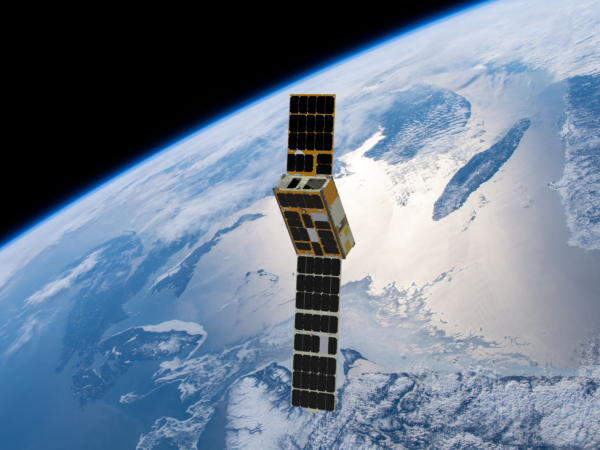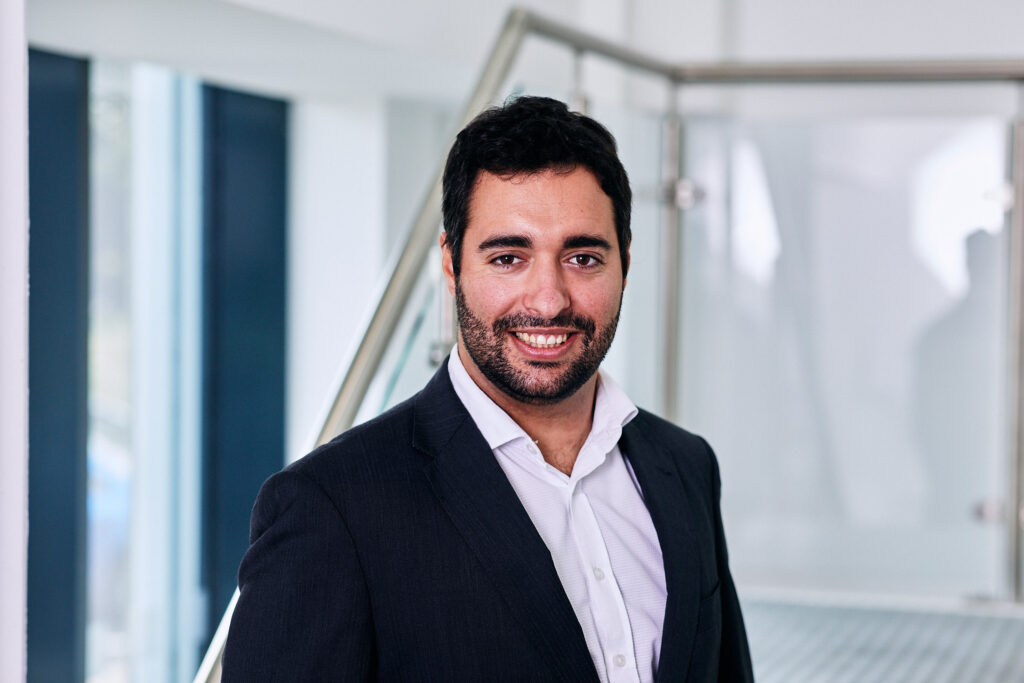 Back
Back
A one-stop satellite shop with customers across the planet
Harwell-based startup Open Cosmos lets you launch satellites to track climate-related data — from deforestation to coastal erosion. It brought models of its satellites and a demo showing use cases of its product DataCosmos to 🔥THE HEAT 2024.

THE HEAT, VOYAGERS.io’s first-ever climate-tech festival, took place on Friday September 20 2024 at the extraordinary Harwell Science and Innovation Campus in Oxfordshire.
THE HEAT is a hands-on, practical, mind-expanding, friendship-building, exploratory, curiosity-led, science-based, creative, artistic, participatory, decentralised, experimental, edgy, live, risky, urgent and unpredictable gathering of the talented people working on climate technologies. THE HEAT is not a conference. Don’t expect dull panels or awful coffee. Instead, come to make new friends, experience science in action, learn and share your knowledge, inspire and be inspired. Bring your most engaged and curious festival mindset.
Harwell-based startup Open Cosmos lets you launch satellites to track climate-related data — from deforestation to coastal erosion. It brought models of its satellites and a demo showing use cases of its product DataCosmos to 🔥THE HEAT 2024.
🧠 Learn more about Open Cosmos in our article below and at Open-Cosmos.com.
Need to launch an Earth-observation satellite to monitor climate change, or maybe even a whole constellation to collect data on marine pollution? Open Cosmos, a startup based on Harwell Campus, is your one-stop shop — and fresh from winning a €60m seven-satellite contract from the Greek government, the team brought its data-gathering expertise to THE HEAT to show how its tech is tracking deforestation, coastal erosion and other planetary threats.
The nine-year-old startup has launched 10 satellites to date, typically to collect data that can help fight the climate crisis. Its first launch, in 2017, tracked oxygen levels in the atmosphere; and though it has also launched telecom satellites, most of its current work focuses on Earth observation. A satellite built for the UK government uses high-resolution hyperspectral cameras with artificial intelligence and an inter-satellite link to capture image data at specific frequencies across the electromagnetic spectrum — which allows real-time monitoring of illegal fishing. “You can get reactive warnings within minutes after the picture has been taken”, Open Cosmos founder and CEO Rafel Jorda Siquier explains. “This is proving to be extremely useful for monitoring biodiversity, wildfires and critical infrastructure, particularly in the energy domain.”

Earlier this year, the 100-strong startup won a €35 million European Space Agency contract to monitor the Earth’s magnetic field. “This is something we know so little about, and that protects us from solar storms, from all sorts of hazards,” Jorda Siquier, 35, says. “It’s called NanoMagSat, and we’ve delivered the first and the second phase, and hopefully soon we are going to start the third phase, which involves manufacturing and launching the operations of the satellites.” The company is also building the Atlantic Constellation Pathfinder for the UK and Portugal, to monitor coastlines and the Atlantic Ocean, as well as wildfires and flooding on land.
Open Cosmos originally spotted a gap in the market. “About 10 years ago, I spotted a change in paradigm in the satellite industry, offering a chance to make them smaller and faster with quicker innovation cycles,” Jorda Siquier says. A key development was SpaceX’s Falcon 9, which launched its first mission in 2010 and its first commercial mission in 2012. “There was a 10x reduction in launch cost when Falcon 9 became truly operational,” he recalls. “The reduction in that cost per kilogram changed the unit economics of satellites, and enabled them to be launched with a lot more frequency, and with time enabled the deployment of small satellites and nanosatellites.”
The company has come a long way since it was founded in 2015 at Harwell Science and Innovation Campus, where THE HEAT 2024 took place. “We were the third or fourth space organisation there — and now you see the campus flourish with over 180 organisations, with billions in investment going into the campus to enable this, and we feel very proud to be part of this community’s journey.” The company somehow bootstrapped its first satellite back in 2017, and since then has raised a Series A round of £5m the same year, and a £40 million Series B round last year.
Open Cosmos has three core products. Its OpenOrbit business can design, manufacture and operate satellites in months, according to a customer’s needs. OpenConstellation offers shared satellite infrastructure, so that customers can access data and services from a range of satellites. And DataCosmos is an AI-powered platform that provides customers with access to advanced satellite constellation data, combined with other relevant data sources, integrated and exploited by a wide variety of analytical algorithms to address high impact business and government solutions, ranging from maritime surveillance to emergencies and disaster management. The company is also innovating around how satellites are operated. “We have new propulsion capabilities to launch our satellites, so we will be able to manoeuvre those satellites to deliver them faster if needed, or to avoid a collision, or to extend their life,” says Jorda Siquier.
Open Cosmos brought models of its satellites and a demo showing use cases of DataCosmos to THE HEAT, such as in the energy sector, in windmill farms, oil spills, desertification as a consequence of climate change in southern Europe, and wildfire monitoring.

Learn more about Open Cosmos at Open-Cosmos.com.